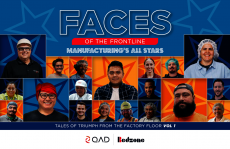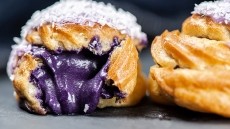Blue Smarties are back thanks to Spirulina
back on the shelves following their removal two years ago in
response to concerns over artificial additives.
Nestle Rowntree stopped producing blue Smarties when it promised to remove all artificial colourings from the confectionery amid concerns that they are linked to hyperactivity and may pose other health risks. The blue Smartie was replaced by a white one, while a suitable natural alternative was found to the colouring Brilliant Blue (E133). "After three years of searching Nestle Rowntree has found a way to create the much loved blue Smarties without artificial colours or flavours," said Graham Walker, UK Trade Communications Manager. "There were a lot of disappointed consumers when blue Smarties were taken out of the range but I am delighted to announce that they are back." After an extended period of development, Nestle now appears to have found the solution in Spirulina, which is produced from two species of cyanobacteria (blue-green lake algae). It is commonly used as a dietary supplement as it contains unusually high levels of protein, between 55 and 77 per cent by dry weight. It is also rich in essential fatty acids, B vitamins, vitamin C, D and E, and contains potassium and other minerals. No one from Nestle was available for comment in time for publication on how the colouring was developed and who is supplying it. Moreover, no one could say whether the blue Smarties will maintain any of Spirulina's health benefits. Smarties became free from artificial colourings after Nestle Rowntree pledged to rid its entire range of such additives in the summer of 2005. At that time, the company reported a 9 per cent increase on sales of Rowntree products, indicating the strategy's popularity amongst consumers. There have been increasing health concerns regarding artificial food colourings and flavourings. The issue came to a head with the FSA-funded study conducted at Southampton University and published in The Lancet last September. It concluded that cocktails of food colourings commonly used in confectionery and beverages, and sodium benzoate, can aggravate hyperactivity in children. However, Brilliant Blue was not included in this. Manufacturers have been responding to consumer demand to reduce artificial additives on the back of health concerns and a growing trend to choose natural and organic. Mintel's Global New Products Database (GNPD) found that more than a thousand new food products claiming to be additive- and preservative-free were launched in the UK last year, according to Mintel, representing almost a quarter of all launches and nearly three times as many as any other European country. In all, there were 1019 products listed for the UK market. Germany was in second place with 388, and France was third with 322.













